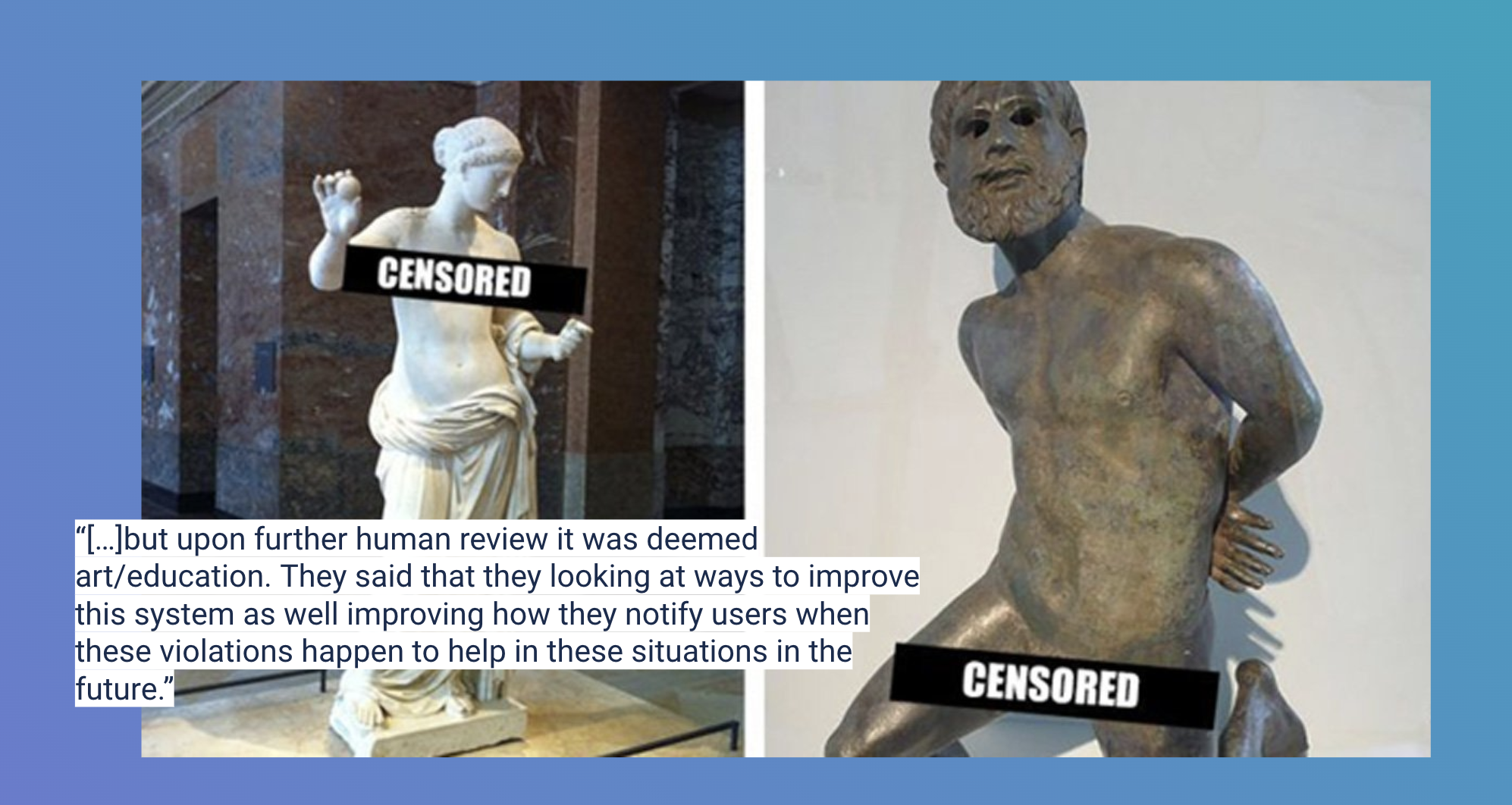I'm a Trained Life Coach, and I Don't Like the Coaching Industry
Between my first miserable, salaried job and the beginning of my tenure at HubSpot, I managed to make a meager living as a freelance writer. It was my first foray into entrepreneurship and was far from successful, even when considering the multitude of lessons I learned from that period.
As a complete newbie to entrepreneurship and freelancing, I sought out any resource I could find to make the work and my ambitions more realistic. Lacking adequate experience to assess how valid or helpful resources really were, my personal development reading list spanned everything from MBA-style case studies that went completely over my head to New Age Law of Attraction drivel.
Leap and the Net Will Catch You (If You're a Trust Fund Baby)
At various points within that spectrum, I came across content centered around coaching–, particularly life coaching. In one book that I read (on the New Age end of the spectrum, I’ll point out), the author mentioned that she had wanted to work with a specific coach to help her get her business off the ground, but he charged $80,000 per project.
Luckily, she believed hard enough so the universe made it happen that she would just randomly have a spare $80,000 available to pay him.
… In the 9-months I spent trying to find my footing as a freelancer in 2017, I made $15,000, putting me well below the poverty line for my area. And she was dropping $80,000 to work with a coach? Even as a product management professional with a greatly increased income, I couldn’t imagine feeling compelled by anything enough to drop $80,000.
Incredulity aside, the book did make me wonder what the hell a coach could offer that would be worth $80,000. What kind of wizardry were these savants performing that would enable them to live comfortably off a single client or two per year? And people were willing to pay???
Cue reading rabbit hole two: coaching. What is it? Who does it? Why?
My preliminary research into coaching piqued my interest, but so much of what I read and came across felt too intangible and opaque. I wasn’t willing to invest in a training program or work with a coach of my own when I couldn’t understand the actual value. So much of what I read made it seem like coaching was an outlet for wannabe psychologists who couldn’t be bothered to return to school for a real degree.
Despite My Skepticism, Eventually, I Met a Coach I Loved
Fast forward a few years. Back in the W2 workforce, above the poverty line, and still enjoying dabbling in entrepreneurship on the side, I came across Sam Horn’s Someday is Not a Day in the Week at Barnes and Noble. It caught my attention well enough that I took it to the register. Once I cracked it open, I devoured it. Horn’s narrative voice caught my attention. Now that I know her better (more on that in a moment), I know that Horn’s strength is communication. She’s attentive to the world around her and her own intuition. Plus, she’s a storyteller. One second, you’re reading about her experience driving along a perilous mountain road in a snowstorm. Next, you’re digesting practical advice about analyzing what goals are most important to you and aligned with your values. The transition is seamless, the lessons digestible, and the reading delightful.
Someday says a lot about entrepreneurship, goal-setting, and success. One of the words it does not use, however, is coaching.
Curious to learn more about Sam Horn, I went to her website and saw that she worked 1:1 with clients to help them refine their business and book ideas, getting their projects off the ground. I sent an inquiry email to see her prices and promptly heard back from her assistant. The quoted dollar amount was more than 22-year-old me could afford, so I politely backed out. However, her assistant advised that I schedule a complimentary 30-minute intro call with Sam to learn more about what working with her was like.
Excited by the prospect of speaking with an author whose work I loved, I accepted, even though I knew in my gut that I was walking into a 30-minute sales pitch for a service I couldn’t afford.
I was wrong. On the phone with Sam, I had one of my life's most engaging 30-minute conversations. At no point did she try to sell me on continuing to work with her– it was a briskly paced attempt at extracting as much value as possible in a mere half hour.
Leaving the call and wishing I could work with her more, I looked over my bank statements and wondered what I could cut back on to make it possible. Darn you, food and rent for getting in the way!
A few months later, her assistant reached back out to let me know that Sam was hosting a writing retreat at her home in Colorado. She knew I had been interested in working with Sam in the past, so she wanted to put it on my radar.
The enrollment fee wasn’t insane but was still a bit high for me. Luckily, I was more tenured in my career by then and working in a role where my success hinged upon my communication ability. So, I did what anyone in my position would do: convinced my manager that the retreat was a good use of my professional development budget.
Shortly before the first time we all heard about COVID-19 and the world shut down, I flew from Kentucky to Colorado. I found myself among eight or nine fabulous women in Sam Horn’s living room, each of us discussing our passion projects as Sam guided us through the process of refining and clarifying our ideas.
By the time I got home, I knew that I wanted to be able to do what Sam did. Back to Google!
My searches brought me back around to coaching. What we had spent the retreat doing as a group, I came to learn, was group coaching. This abstract, intangible profession I had read so much about as a new freelancer was again staring me right in the face. This time, however, I had more context and money. When COVID-19 shut things down, and I couldn’t leave my house, I decided that investing in a remote coaching certification program would be a good use of my time.
How I Became One of the Woo-Woo "Gurus" I Didn't Trust
Fast forward again: I’m a trained coach, I work with a few clients each month, and I enjoy building those 1:1 relationships and seeing my clients reach their goals. Thanks to my backgrounds in business strategy and fitness (oh, becoming a certified personal trainer was also part of my COVID boredom survival strategy), I’ve been able to blend my experiences with my coaching skills to help folks with a variety of goals from figuring out what the hell they want to do professionally, to getting more defined muscles.
Part of me wonders if I would ever make the leap to coaching full-time. That line of thinking, however, typically shuts down pretty quickly. Every time I get the urge to coach full-time and get into the weeds on what it would take to make it feasible, I find myself feeling repulsed by the entire industry.
Does that make me hypocritical? Maybe. But, I often feel about coaching the same way that I feel about organized religion. Sure, there are some people who are doing really wonderful things, but on the whole, I find myself frustrated more often than inspired.
My Qualms with the Coaching Industry
The MLM Vibes
So much of the coaching industry feels like a multi-level marketing scam. If often seems like there are more coaches who work with coaches than there are coaches who work with non-coaches. At every turn, there are coaches with eBooks, courses, webinars, and mastermind groups for training other coaches in how to find clients, build their social media presence, construct funnels, and so on.
Surface-Level Get-Rich-Quick Attempts
Having looked into a few of those resources, it didn’t take me long to realize that “having your own course” equated to little more than being able to read the first page of results from a standard Google search and delivering the information charismatically. If you thrive off platitudes and surface-level advice, boy do I have some recommendations for you!
The Lack of Business Acumen
Looking at community resources geared toward professionals in the industry, such as the Coaches Helping Coaches Facebook group, doesn’t paint a much more attractive picture. Again, there are some individuals who have insightful feedback, mean well, and clearly know their stuff. But they’re the minority. It often seems that the conversations happening in similar groups can be boiled down to, “I’ve decided that my niche is some meaningless New Age jargon that only has meaning to me, so why aren’t people buying my program?”
The Lack of Oversight and Consistent Ethics
I even once saw a comment on a post in which a self-proclaimed coach chastised another user for encouraging their client to seek psychiatric help for mental illness, claiming that “big pharma” was just a scam and that mental illnesses weren’t real. I promptly replied that taking SSRIs saved my life and cited statistics about the dangers of stigmatizing mental health treatment and the ICF’s (International Coaching Federation’s) statement of ethics about the scope of coaching and the importance of referring clients to medical professionals when appropriate. For some reason, following that exchange, the thread was closed to new responses by moderators.
In this environment, well-intentioned coaches are often corralled into surface-level work and the same generic marketing approaches that every aspiring coach pursues. If I see one more inspirational quote over a picture of a sunset on Instagram…
But Coaching Can Still Be Valuable
For coaches to be successful, they need to have a unique point of view that informs their value proposition and not just toss out vague concepts that they’ve read about. They have to know how to coach and not just echo TEDtalk talking points. They need to have an understanding of who their clients are and the problems that they face and not just endlessly post to social media and hope someone with a fistful of cash shows up. Coaches who want to take their coaching seriously have to learn how to operate as a business– nurturing leads, providing customer service, doing basic accounting– and not just expecting easy, passive income. And for the love of all that is holy, not every 20-something with a 101-level understanding of a topic and video editing skills needs to record and sell their own course.
When I think back on my own interactions as a coach and on experiences I’ve had with people like Sam Horn, I truly believe in the value of coaching. It can be transformative in the sense that it allows people to focus on what is meaningful to them and to buoy their motivation in making progress toward their goals. But I find the industry and the reputation of many within the industry endlessly frustrating.




